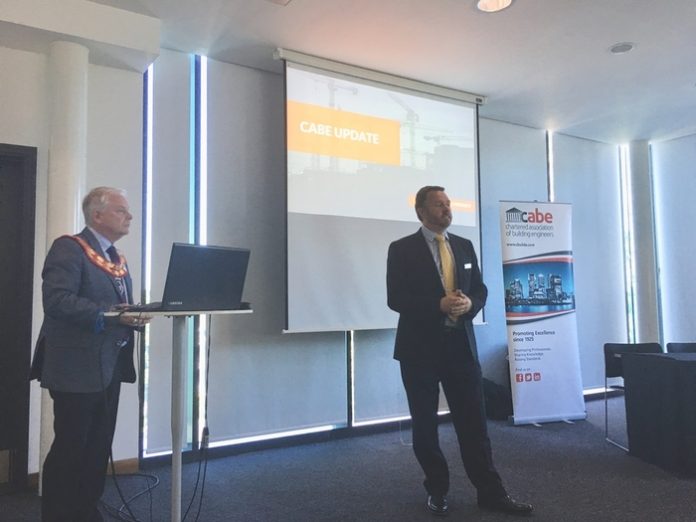Competence in design, construction and operating buildings, set against an industry that is too fragmented and a Building Regulations review that ‘was too light in many places’ has been highlighted by a leading voice in design, compliance and regulations.
At an event in Guildford, hosted by the southern regional branch of CABE, Neil Cooper of MLM Group gave his views on the Building Regulations and ‘where are we now?’ As CEO of MLM Group, a leading multidisciplinary design, compliance and specialist practice, and Chair of BRAC, The Building Regulations Advisory Committee, Cooper is ideally placed to provide perspective on an industry that is under the microscope.
Post-Grenfell, the industry has acknowledged that many of its processes need to be improved but in a sector that is highly fragmented this isn’t easy. The industry therefore turned to the much anticipated review of the Building Regulations by Dame Judith Hackitt – Building a Safer Future – which looked set to provide the industry with a clear direction of travel and provide clarity on next steps. For many it fell short and for Cooper it addressed many areas however, it was also light in many areas.
He raised the points that whilst there was broad agreement with the findings and direction of travel, workstreams will need to be prioritised and this isn’t something that can be addressed quickly, it will take years. At the same time, whilst focussed risk management is starting to happen as part of a cultural change that ensures we have clear accountability, risk management will require legislation. It isn’t something the industry can, or should be responsible for managing themselves.
One of the key issues the report did highlight which has been welcomed, was the golden thread of design, construction and occupation and what happens to buildings once they are handed over. And a key part of this according to Cooper, is record keeping and the need for gateways of approvals – “Record keeping and duty holder principles are crucial but we need regulation to create clear gateways through the design, construction, handover and occupation stages to ensure that standards are maintained.”
To achieve the golden thread however, we need to ensure competency right across the industry. Competency was a clear theme in the Hackitt review and something the industry has been quick to support and something that Cooper supports alongside impartiality and accountability – “competence has to be measured and it has to be transparent.”
One area that did raise concern was the report’s recommendations of a new regulatory system for tower blocks. Whilst change is needed the concern is that we end up with a system that is even more complex than the current one and that we lose clarity. If this new regulatory system is to work it needs to be managed centrally by government and be much more collaborative in its approach.
Cooper went on to talk about what he believes are short term priorities including consultation on fire test and desk top studies, issues over combustible materials, clarification of Approved Document B (ADB) and its potential for a full technical review next year.
It is clear the Hackitt review has been a turning point but there is much to do and as an industry it falls on every organisation to play their part to ensure change happens. According to Cooper, competence, a cultural change and accountability are the industry’s responsibility but we can’t do it on our own, this change has to involve government leadership and it has to be clear, concise and collaborative.




















